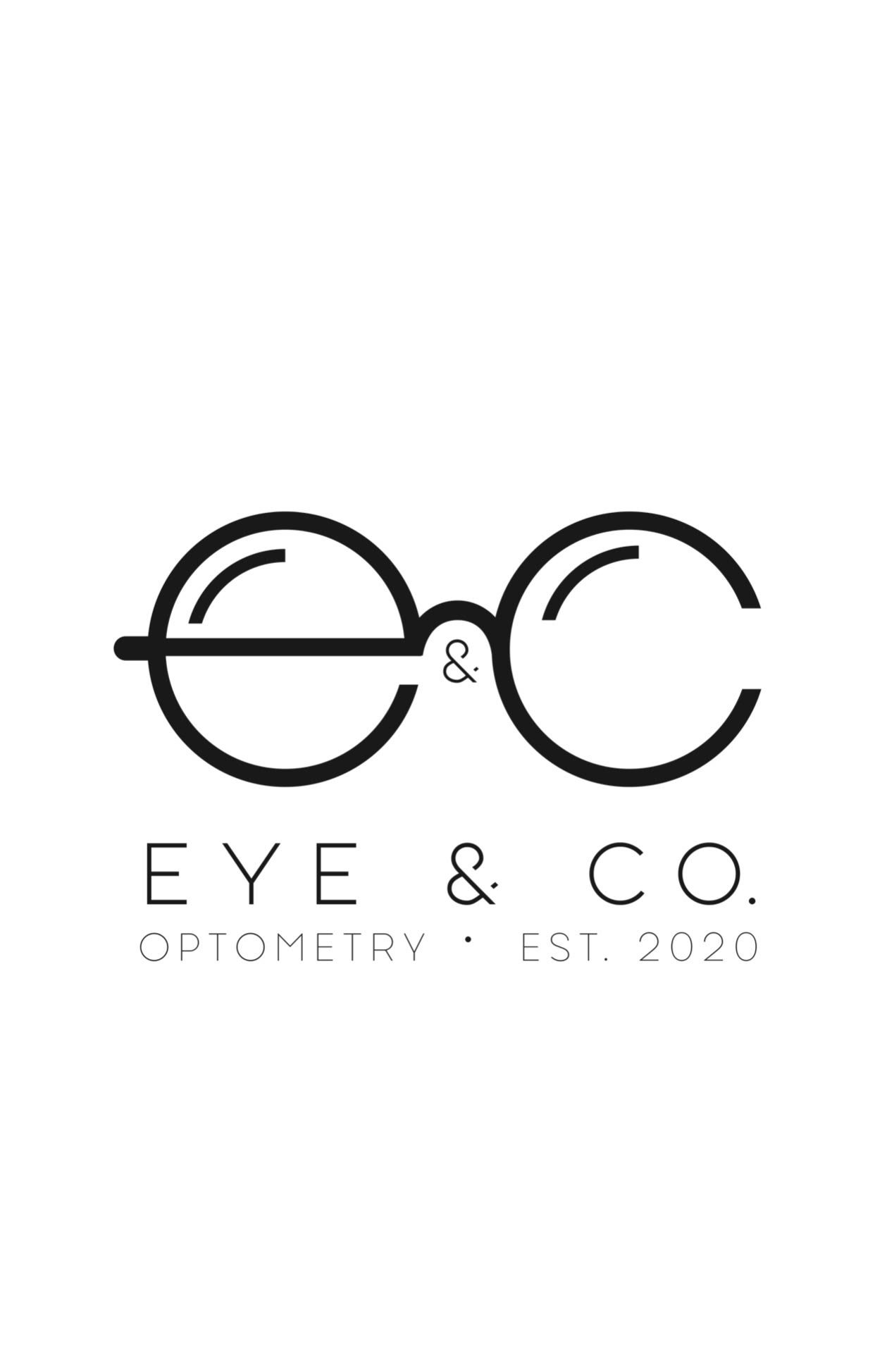THE EYE & CO. EXPERIENCE
•
THE EYE & CO. EXPERIENCE •

“Vision is the art of seeing what is invisible to others.”
— Jonathan Swift
Comprehensive Eye Examination
An eye exam is far more than a simple pass or fail assessment; it is a crucial component of your overall health care. At EYE & CO., we emphasize early detection, prevention, and maintenance during our thorough eye exams. Each comprehensive exam serves as a detailed evaluation of your entire eye and visual system, similar to a physical examination for the rest of your body.
These exams play a vital role in identifying a range of eye diseases and disorders, including glaucoma, cataracts, retinal detachments, and macular degeneration. Beyond eye health, they can also uncover systemic health issues such as diabetes and high blood pressure, underscoring the interconnectedness of ocular and overall health.
We understand that every individual has unique needs, which is why we personalize each eye exam to cater specifically to you. For adults aged 20 to 64 years, we recommend undergoing a comprehensive eye exam every one to two years to ensure optimal eye health and address any concerns proactively. Prioritize your vision and overall health by scheduling your eye exam today.
Child Eye Examination
The Canadian Association of Optometrists emphasizes the importance of early eye examinations, recommending a first eye exam between six to nine months of age. A comprehensive eye exam, which significantly differs from a standard vision screening, encompasses several critical components:
Health and Vision History Review: This initial step involves understanding the child's overall health and any vision issues that may have been observed.
Thorough Vision Testing: The testing phase assesses various aspects of vision, including nearsightedness, farsightedness, astigmatism, color perception, amblyopia, strabismus, eye coordination, depth perception, and focusing ability.
Ocular Health Assessment: A thorough examination of the overall health of the eyes is conducted to identify any potential issues.
Classroom environments heavily rely on visual learning, making comprehensive eye examinations vital. Such assessments provide a complete evaluation of a child’s vision, far exceeding the insights offered by a simple eye-chart test or vision screening.
A comprehensive eye exam evaluates all aspects of visual function, including eye coordination, focusing ability, and the overall health of the eyes. It is important to note that achieving 20/20 vision does not guarantee perfect eye health; therefore, regular comprehensive exams are crucial for ensuring optimal vision and eye health throughout childhood. Infants should undergo their first comprehensive eye exam between the ages of 6 and 9 months.
Children should undergo a comprehensive eye exam every year.
Senior Eye Examination
As individuals age, their eyes undergo various changes that may significantly impact their vision. Regular and thorough examination by a Doctor of Optometry becomes increasingly important to identify and manage potential complications. Many eye conditions, particularly those affecting seniors over 65, may not present obvious symptoms but can lead to severe vision impairment if left untreated.
Key eye conditions that pose a risk to older adults include:
Presbyopia: The gradual loss of the eye's ability to focus on nearby objects, often requiring reading glasses.
Cataracts: A clouding of the lens in the eye, leading to blurry vision and increasing difficulty in low-light conditions.
Diabetic Retinopathy: A complication of diabetes that damages the blood vessels in the retina, potentially causing vision loss.
Macular Degeneration: A condition that affects the central part of the retina, leading to blurred vision and difficulties in tasks such as reading.
Glaucoma: An eye disease that can cause damage to the optic nerve due to increased pressure in the eye, often leading to vision loss if not detected early.
Low Vision: A broad term for significant vision impairment that cannot be corrected with glasses, contact lenses, surgery, or medication.
To safeguard their vision, seniors should prioritize comprehensive eye exams annually. These proactive measures are crucial in early identification and effective management of age-related eye conditions, ultimately preserving eye health and improving quality of life.
Myopia Management
Myopia management, also known as myopia control, involves implementing strategies to slow the progression of myopia. The significance of myopia management lies not only in its immediate benefits but also in its long-term implications for eye health.
In the short term, individuals experiencing slower myopia progression will benefit from improved uncorrected visual acuity, allowing for a better quality of life and enhanced daily functioning. This can be particularly vital for children and adolescents, who may encounter difficulties in educational settings due to uncorrected vision issues.
Long-term, effective myopia management has the potential to significantly reduce the risk of developing ocular diseases associated with high myopia, such as glaucoma, retinal detachment, and myopic maculopathy. By mitigating the progression of myopia, individuals may protect their vision and overall eye health, decreasing the likelihood of serious vision impairment in later life.
The process of myopia management begins with early assessment and education, targeting both patients and their parents. It is crucial to identify risk factors for myopia before any refractive error manifests. Recommendations may include increasing outdoor activities and limiting extended periods of near vision tasks, which have been shown to help reduce the incidence of myopia.
Once an individual presents with a myopic refractive error or is identified as being at risk, a consultation with Dr. Wong will review potential myopia management strategies. These may incorporate a variety of interventions tailored to the patient’s specific needs, including specialized optical devices, topical treatments, or behavioural adjustments aimed at controlling the rate of myopia progression.
In summary, myopia management is an essential component of contemporary eye care, promoting better visual outcomes in both the short and long term while contributing to the preservation of optimal eye health. Slowing down the progression has short- and long-term impacts. In the short-term, an individual with a lower refractive error will have better uncorrected acuity. In the longer term, slowing down progression may reduce the chance of ocular disease and subsequent vision impairment.
Myopia management starts before the onset of a myopic refractive error, with the assessment of risks and provision of education to patients and parents on ways to mitigate that risk, for example spending more time outside and less time on prolonged near vision. Once an individual demonstrates a myopic refractive error or is deemed at risk of developing myopia, Dr. Wong will discuss the introduction of a myopia management strategy as a consideration.
Contact Lens Examination
To successfully wear contact lenses, Dr. Wong carefully evaluates which type of contact lens would best suit your individual needs. Key considerations include your specific vision concerns, your occupation, and your recreational interests, among other factors.
All contact lenses prescribed by Dr. Wong are FDA approved in Canada, which is essential for maintaining healthy eyes. This ensures not only the safety and comfort of the lenses but also their effectiveness in addressing your vision requirements. By prioritizing these elements, Dr. Wong helps you select the right lenses, ensuring a comfortable and successful experience in wearing contact lenses.
Diabetic Eye Examination
A comprehensive eye exam is crucial for preventing vision loss, especially for individuals managing diabetes. Regular evaluations enable Dr. Wong to detect potential vision-threatening changes in your eyes, ensuring that early treatments can be implemented to avoid irreversible damage. It is imperative to maintain diligent control of your diabetes to mitigate the risk of diabetic retinopathy, a serious condition that can result in significant vision impairment.
By committing to annual diabetic eye examinations can facilitate early detection and intervention, which are essential in preserving your vision. Prioritize your eye health and safeguard your sight by scheduling your eye exam today.
Dry Eye Evaluation
Dry eyes are a prevalent issue, especially in Alberta's climate, where factors like cold temperatures and low humidity can exacerbate ocular dryness. Dr. Wong specializes in evaluating ocular dryness and will conduct a thorough assessment to understand the severity of your condition.
During your appointment, Dr. Wong will discuss various methods to enhance the comfort of your eyes. This may include lifestyle modifications, recommended over-the-counter lubricating eye drops, and techniques to reduce environmental triggers.
For those with more severe symptoms, Dr. Wong may explore advanced treatment options. Your comfort and eye health are our top priorities, and we are here to help you find the most effective relief.
Pre + Post Surgical Care
Dr. Wong provides comprehensive pre-operative and post-operative care for both cataract and refractive surgeries. During your pre-operative assessments, she carefully evaluates your eye health and discusses the procedures in detail, ensuring you understand what to expect. She also takes the time to explore various lens options that align with your lifestyle and hobbies, helping you make informed decisions tailored to your vision needs.
In the post-operative phase, Dr. Wong will closely monitor your recovery, addressing any concerns and ensuring optimal healing. She will guide you through the necessary steps to maintain your eye health and achieve the best possible outcome from your surgery. By considering your daily activities and preferences, Dr. Wong aims to enhance your overall vision experience, allowing you to enjoy life to the fullest.
Ocular Emergencies
Alberta Health coverage is available towards urgent eye care appointments that address various conditions, including:
Eye and eyelid inflammation
Eye injuries
Foreign objects in the eyes
Sudden changes in vision
Monitoring for diabetes-related issues, glaucoma, and retinal disease
Post-operative care for cataract patients
Dr. Wong is equipped with the proper tools and equipment to diagnose and treat these conditions effectively. Additionally, Dr. Wong collaborates with other healthcare providers to ensure you receive comprehensive and effective care. Your eye health is a priority, and we are committed to delivering the highest standard of service.
Eyewear Consultation
Selecting eyewear can be overwhelming. At EYE & CO. Optometry, we prioritize your needs by taking the time to listen to your concerns and preferences. Our skilled team is dedicated to guiding and educating you on lens choices, ensuring you understand the benefits and features of each option.
We emphasize the importance of proper fitting eyewear, as it significantly impacts comfort and functionality. All eyewear at EYE & CO. is hand-selected by our team with purpose and intention, guaranteeing that you receive styles that not only look good but also provide the quality and fit that you deserve. We are happy to assist you in finding the perfect eyewear that meets your unique vision needs.

